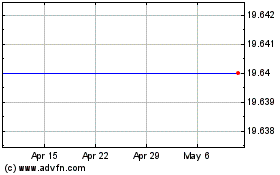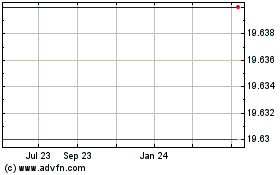By Nicole Friedman and Akane Otani
Powerful forces have been roiling oil markets this year. There
are the vagaries of Chinese demand, shifts in American production,
the enigma of OPEC policy.
And then, of course, there's the imminent demise of Yahoo
Messenger's old software version.
"I'm very upset," said Andy Lebow, an energy analyst and former
oil broker who is lamenting the final days of the old version,
which Yahoo plans to scrap Aug. 5 to steer customers to its new
Messenger system. "My username is attached to all the people that I
talk to. That's important to me."
For as long as many of them have been working in the field, tens
of thousands of oil traders around the globe have relied on the
Yahoo system when logging trades for millions of barrels of crude
and fuels such as gasoline every day. But Yahoo's new Messenger
won't separately archive chats and will include the ability to
"unsend" a message, making it incompatible with many trading
companies' regulatory requirements.
That's unsettling legions of oil traders who spend all day on
Yahoo Messenger placing orders and circulating gossip, jokes and
headlines the way others use Twitter.
"The first question that suppliers ask their customers in
energy, and traders ask one another, is 'What's your Yahoo
address?' " said Elaine Levin, president of brokerage Powerhouse,
whose Yahoo username is elainetradesfutures.
Traders' Yahoo shorthand, cribbed from the futures market,
includes a letter for each month (January is "F," December is "Z")
and abbreviations for ports and storage locations. The phrase
"how's WTI CS U7" translates: "What is the price for a West Texas
Intermediate crude swap for September 2017?"
Brokers "blast," or simultaneously message, hundreds of people
at once, with price information or a friendly "gm" (good
morning).
Fuel trader Marc Refsoe Holm has his Yahoo username on his
business card and said about 80% of his financial trades are over
Yahoo Messenger. His habit puzzles new hires.
"Young people are like, 'Wait, what?' " said Mr. Holm, 33 years
old, who is head of the U.S. fuel desk for Maersk Oil Trading Inc.
"They are a little surprised that we're using such an old-school
system."
On any given day, Mark Benigno, co-director of energy trading at
INTL FCStone Inc., has 100 chat screens open. "Sometimes you're
just BS-ing with people," he said. With some contacts, "you talk to
them 50 times a day, like, 'Take a look at this YouTube'...It's
like being a teenager."
That makes trading floors quieter than they used to be, said Ms.
Levin, the brokerage president. "My bread and butter -- 'I need to
do a TAS trade,' 'I have an EFP that needs to be posted,' " is all
conducted over Yahoo, she said, rattling off transactions including
"trade at settlement" orders and "exchange of futures for physical"
trades.
The Messenger version's sunset date has inspired nostalgia among
old-timers. Ernie Barsamian, chief executive of storage brokerage
The Tank Tiger, in a note to clients wrote a poem:
"We all agree that Yahoo Messenger was the natural habitat/For
traders to discuss whether the market was volatile or flat.../Now
Yahoo thinks they are the windshield and we are the gnat."
Many traders express bewilderment, even anger, that Yahoo hasn't
done more to accommodate them. "I still cannot figure out why Yahoo
couldn't see the diamond they had," said Jorge Montepeque, a senior
vice president at Eni Trading & Shipping.
A Yahoo Inc. spokeswoman said the company was aware of its
central role in the oil market. Traders are a "small fraction" of
Yahoo Messenger's millions of users, she said, adding that Yahoo is
focused on its consumer audience with its new Messenger.
Instant messaging is popular with traders in every market, but
Yahoo has a particular foothold in oil.
Some oil veterans take a less charitable view of Yahoo
Messenger. Newer financial messaging systems tend to be more
sophisticated, letting users share live data and charts and more
easily record details about deals.
Mary Ellen Viola, a United-ICAP broker, communicates with
friends and family on Facebook, Skype, Twitter and her iPhone. She
has never used Yahoo Messenger outside of work, she said. "It's
outdated."
When Yahoo launched it in 1998, Messenger was considered
transformative. For years, oil trading was handled on exchange
floors, with traders screaming at each other in chaotic pits or
yelling into phones.
Once instant messaging arrived in the oil market, "I thought the
floor was over," said Ray Carbone, president of Paramount Options,
who used to work on the New York Mercantile Exchange floor. "I just
smelled it." (Oil options are still traded on the Nymex floor, but
not futures.)
It wasn't long before Yahoo Messenger reached critical mass and
became an essential trading tool. "It snowballed," said Morgan
Downey, who joined Yahoo Messenger in the 1990s while trading oil
at a bank.
Brokers encouraged him to join the service, and soon the bank's
customers, such as refiners and airlines, were also on the system,
he recalled. "After six months," said Mr. Downey, now chief
executive of data provider Money.net, "no one could leave Yahoo
Messenger."
With oil's Yahoo Messenger era coming to an end, traders and
brokers have been shopping around, signing up for multiple services
or waiting to see what peers choose before making a decision.
The competition is fierce. Intercontinental Exchange Inc. cut
the price for its chat application, ICE Instant Messaging, to zero
in June and said its chat users are up 65% this year. CME Group
Inc., which operates the Nymex, said it is using the Yahoo
Messenger decommissioning to push its own instant-messaging
application. Bloomberg terminals are widely used by banks, hedge
funds and other traders, but many smaller participants in the oil
market, such as gas-station chains, don't use the terminals.
Doug King, chief investment officer at RCMA Asset Management,
said he already communicates via Bloomberg, WhatsApp, email and
telephone.
And his peers who are groaning about life after Yahoo? "They're
all dinosaurs," he said.
Write to Nicole Friedman at nicole.friedman@wsj.com
(END) Dow Jones Newswires
July 21, 2016 13:06 ET (17:06 GMT)
Copyright (c) 2016 Dow Jones & Company, Inc.
Altaba (NASDAQ:AABA)
Historical Stock Chart
From Mar 2024 to Apr 2024

Altaba (NASDAQ:AABA)
Historical Stock Chart
From Apr 2023 to Apr 2024
